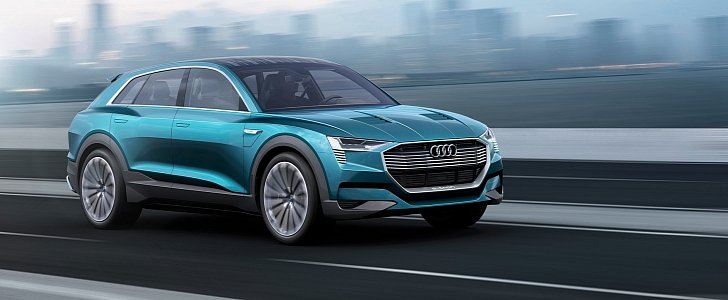Audi has big plans for the future, as it prepares to launch its first production electric car, and it is also developing self-driving vehicles.
However, the Ingolstadt-based carmaker does not think autonomous cars will become mainstream in the next decade. Until self-driving cars become a norm in the automotive industry, Audi plans to develop significantly its technologies in this field. The German company will improve its adaptive cruise control technology, along with systems that allow cars to avoid accidents and park themselves.
According to Scott Keogh, Audi North America President, the technology to enable cars to drive themselves from point A to point B without the driver touching the wheel is years away, at least on a production scale. Interestingly, the company has made a few concepts that can drive themselves, but none of them has sent the technology to the production lines.
In an interview with Automobile Magazine, the boss of Audi's North American branch stated that fully autonomous vehicle would only be possible on a large scale if the technology to make cars drive themselves is connected between carmakers and with infrastructure.
While autonomous vehicles must be prepared to be able to operate without input from infrastructure to be entirely independent, they still would need data and mapping from congested urban spaces. Such technology has been discussed for some time by auto industry executives, even for conventional cars, which could be made to talk to each other to warn their drivers of congestions, accidents, and hazards while on the road.
Audi is continuing its advancements with its Piloted Driving concepts, but infrastructure and legislation need to be improved to allow these vehicles to thrive.
At the time, the technology in self-driving cars needs line markings on the road to ensure proper functionality. If this is missing, the technology has no bearings and needs a car in front that leads the way.
Current production vehicles in the Audi range can operate autonomously at speeds of up to 37 MPH (60 km/h). These cars need the driver to have at least a hand on the steering wheel to ensure there is someone alert, ready to take over if the system can't read the lines on the road distinctly.
Since most countries have road networks that are constantly under repair, and road markings are undergoing modifications or just aren't present, autonomous technology needs more computing power to decide what to do on the fly.
According to Scott Keogh, Audi North America President, the technology to enable cars to drive themselves from point A to point B without the driver touching the wheel is years away, at least on a production scale. Interestingly, the company has made a few concepts that can drive themselves, but none of them has sent the technology to the production lines.
In an interview with Automobile Magazine, the boss of Audi's North American branch stated that fully autonomous vehicle would only be possible on a large scale if the technology to make cars drive themselves is connected between carmakers and with infrastructure.
While autonomous vehicles must be prepared to be able to operate without input from infrastructure to be entirely independent, they still would need data and mapping from congested urban spaces. Such technology has been discussed for some time by auto industry executives, even for conventional cars, which could be made to talk to each other to warn their drivers of congestions, accidents, and hazards while on the road.
Audi is continuing its advancements with its Piloted Driving concepts, but infrastructure and legislation need to be improved to allow these vehicles to thrive.
At the time, the technology in self-driving cars needs line markings on the road to ensure proper functionality. If this is missing, the technology has no bearings and needs a car in front that leads the way.
Current production vehicles in the Audi range can operate autonomously at speeds of up to 37 MPH (60 km/h). These cars need the driver to have at least a hand on the steering wheel to ensure there is someone alert, ready to take over if the system can't read the lines on the road distinctly.
Since most countries have road networks that are constantly under repair, and road markings are undergoing modifications or just aren't present, autonomous technology needs more computing power to decide what to do on the fly.

